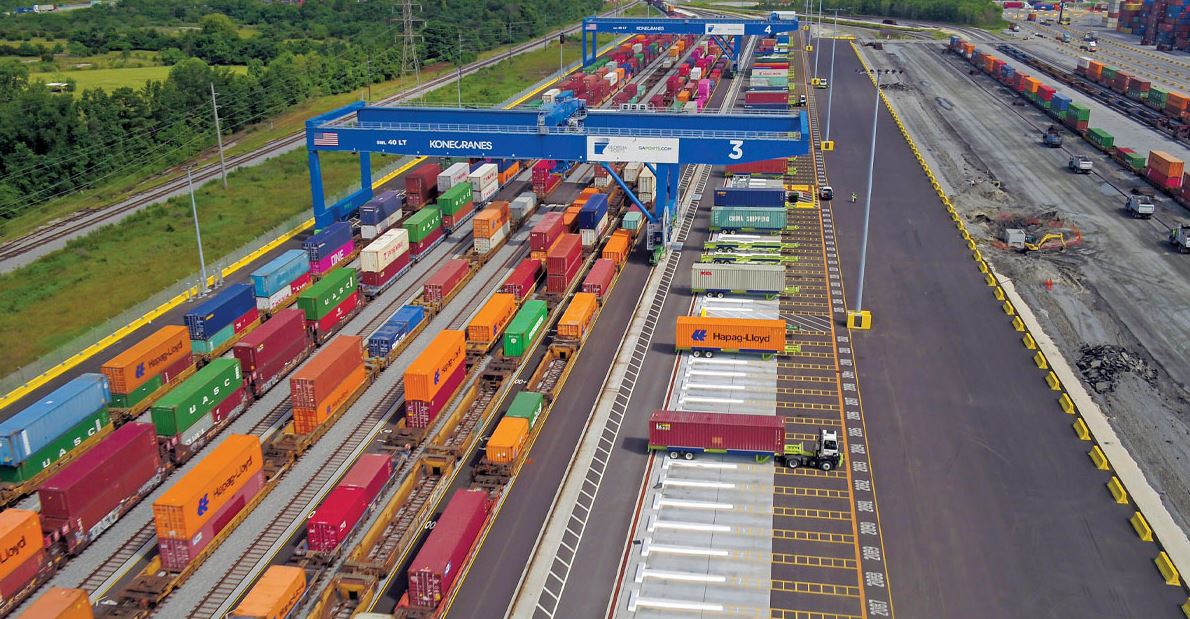US supply chain crisis and their remedy
Nov 02, 2021US supply chain crisis and their remedy
By Target Language Translation Services | Updated: 2021-11-02 11:00

At the height of the supply chain crisis in the United States about two weeks ago, according to The Washington Post, 79 container ships were anchored in the sea off the coasts of Los Angeles and Long Beach waiting to dock at the already crowded berths of the two ports to unload cargo worth an estimated $8 billion.
Meanwhile, big box retailers across the land are seeing their shelves and warehouses being emptied quickly. Towards Christmas season the situation is especially dire. Never before in recent history has the US seen this kind of supply shortage.
Some politicians in Washington have been quick to blame foreign trade for the crisis, as if there would not have been any crisis if "corporate America" produced everything at home, from shoes and toys to Christmas tree decorations. These politicians behave as if Americans would have been happily singing their way to Walmart, Dollar Tree, or amazon.com had all those inexpensive and expensive stuffs been made in Mississippi or some other southern US state.
Let's set the record straight. Those 79 container ships were not anchored off the ports of Shanghai or Tianjin to load goods-they had been waiting off the ports of Los Angeles and Long Beach until about two weeks to unload their cargo. The supply chain crisis is purely a US domestic crisis, caused by the breakdown of the US' logistics network, the shortage of about 80,000 truck drivers, and clogged containers at US ports not able to return to Asian countries for reloading.
The politicians' anti-trade diatribe will not resolve the US' supply chain crisis. On the contrary, it will only exacerbate it. That the job market has more than 10 million positions vacant attests to the fact that there is not even enough trade at this point. The US economy is simply not tuned for the kind of labor-intensive manufacturing that "corporate America" once off-shored or outsourced.
The COVID-19 pandemic is certainly taking a toll on the global supply chains. But while many other countries are still embroiled in chaotic production disruptions and labor shortages, China, the "world's factory", which accounts for more than 20 percent of global manufacturing, is still producing and supplying goods without skipping a heartbeat. Even at the height of the pandemic in February-March 2020, China's supply chains withstood the test thanks to their resilience.
Aside from disrupting the supply chains, the pandemic has also accelerated the US economy's structural change in terms of moving toward creating service-oriented jobs in high-tech industries. In a US of those anti-trade politicians, there would have been even a bigger shortage of truck drivers and more vacant positions in the job market, and prices would be shooting through the roof.
In these times of economic slowdown, it is all the more significant to stress free trade and cross-border capital investment to squeeze out efficiency gains by optimizing global resources for production. The fundamental economic rationale behind the global value chain production model is still inherently valid. We just need to take into consideration the safety, security, reliability and resilience aspects of planning that have been ignored. In other words, global value chains need to be improved, not replaced.
Free trade calls for lower tariffs and lifting of non-tariff trade barriers. US Trade Representative Katherine Tai's tariff exemption process is a good step in the right direction to eliminate or at least alleviate the punitive tariffs the Donald Trump administration imposed on Chinese goods. China is still sticking to the "phase one" trade deal signed with the US during Trump's presidency, as manifested by the recent slew of mega-deals with US companies in the energy sector.
From China's perspective, maintaining a healthy trade relationship with the US even in the face of "intense" but "responsible" competition is still in the national interest, as is further opening up the country to imports and foreign direct investments.
China is the world's largest trading nation with its exports accounting for about 15 percent of the global total, and has about $500 billion of trade surplus. But it is not going to be economically sustainable if China doesn't continue to further open up its market.
This article is reprinted from China Daily.
If there is a copyright, please inform us in time, we will delete it right the first time.